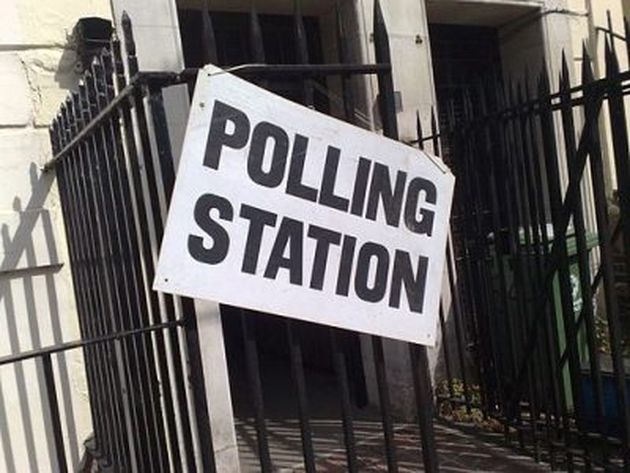We the citizens have a responsibility, not just the politicians, for seeing justice done and advancing the good of our society.
 Photo: flickr secretlondon123, CC BY-SA 2.0.
Photo: flickr secretlondon123, CC BY-SA 2.0.
After weeks of unpredictable, intense and chaotic drama surrounding Brexit (including the bizarre possibility of finding our Prime Minister lying dead in a ditch), the 31st October deadline was something of an anti-climax.
The EU agreed to extend the Brexit deadline until 31st January 2020 without too much fuss. With no-deal Brexit out of the way, the UK parliament has agreed to hold a general election on 12th December.
Boris Johnson, in his fourth attempt, has finally secured the snap election he so desperately wanted.
This election is going to be a once-in-a-lifetime, like nothing gone before election because the fundamental, intractable issue facing the country remains: Brexit. All other issues like security, immigration, welfare and overseas development aid will become secondary considerations.
Over the next few weeks, things could turn quite ugly. We are a deeply divided country as we go to vote on the 12th of December.
Elections are important but I don’t believe that this general election will fix or heal the underlying fault-lines and factors that are tearing our country apart.
Whichever party or parties form the next government, they’ll still have to deal with the Brexit mess and negotiate a new trade deal with the EU after leaving. So much remains unknown and unpredictable.
Disengaging from the democratic vote
Given the gloominess and apathy so many feel about the upcoming December ballot, what should Christians think about elections? How does our faith inform our democratic vote?
In the 2017 general election, voter turnout in the UK was 68.7%. It’s an increase on the record low of 59.4% turnout in 2001, but still not returning to late twentieth century voter turnout rates. Why is it that over a quarter of the eligible voting population don’t bother to exercise their right to vote?
Given the history of the struggles to achieve universal suffrage, this is tragic. After all, it wasn’t until the Representation of the People (Equal Franchise) Act in 1928 that women gained electoral equality, adding five million more people to the electorate.
Democracy is of course more than elections; it includes upholding the rule of law, the separation of powers, an independent and free press, a culture of protection for minorities and more.
However, free and fair elections are at the heart of a healthy democracy. Many people don’t vote because they believe their vote will not make a difference. There is also the widespread view that our politicians are corrupt, and that the major parties are in the pockets of vested interests and big money.
If you’re looking for them, there are plenty of excuses to justify disengaging from the political process. However, when we treat voting in an election as only a consumer act—where we sit back and say, ‘We’ve done our bit and now politicians must deliver’—then disillusionment and disengagement are almost inevitable.
Elections can be great—in context
There’s more to an election than simply ticking a box on the ballot-paper and leaving the rest of the work of politics to someone else—whether elected politicians or unelected civil servants.
This mind-set is unacceptable, especially from a Christian perspective. In a democracy we have a responsibility to stay engaged in the sphere of politics before, during and after an election. Our vote isn’t a one-off choice, it’s better understood as responsible participation.
Christians believe that government is legitimate and ordained by God (Romans 13:1-7). But the legitimate exercise of political authority requires the consent of the governed.
Popular consent confirms who should hold public office and exercise power; it also determines who should not. In an election, we participate in giving our politicians the consent to govern over us for the good of the whole.
By voting in an election, we the citizens affirm the fact that we have a responsibility, not just the politicians, for seeing justice done and advancing the good of our society.
MPs are sent to Parliament to work on our behalf because we’ve entrusted them with this responsibility. Our consent is a vital part of the process.
Moreover, elections are also a defence against corruption and the abuse of power. We, the people, have the power to deny someone the privilege of being our elected representative.
If a politician, after getting elected, simply pursues their own agenda and disregards the wishes of their constituency, then in the next election they must be thrown out. This happens time and again.
I’m aware that there is more going on in our politics today than what is ideal. Money can buy votes, it is much harder to un-elect someone (though not impossible) in safe seats, and party politics means our MPs have to vote in accordance with the party whip. But despite all these constrains and limitations affecting our body-politic, elections are still hugely important.
Therefore we shouldn’t take for granted the fact that we have an upcoming general election and we must value the privilege of living in a less-than-perfect, but functioning, democracy.
Being given the right to vote is a sacred trust; may we exercise it wisely.
Philip S. Powell manages the Learning Community of the Jubilee Centre.
This article first appeared on the Jubilee Centre website and was republished with permission.

Las opiniones vertidas por nuestros colaboradores se realizan a nivel personal, pudiendo coincidir o no con la postura de la dirección de Protestante Digital.
Si quieres comentar o